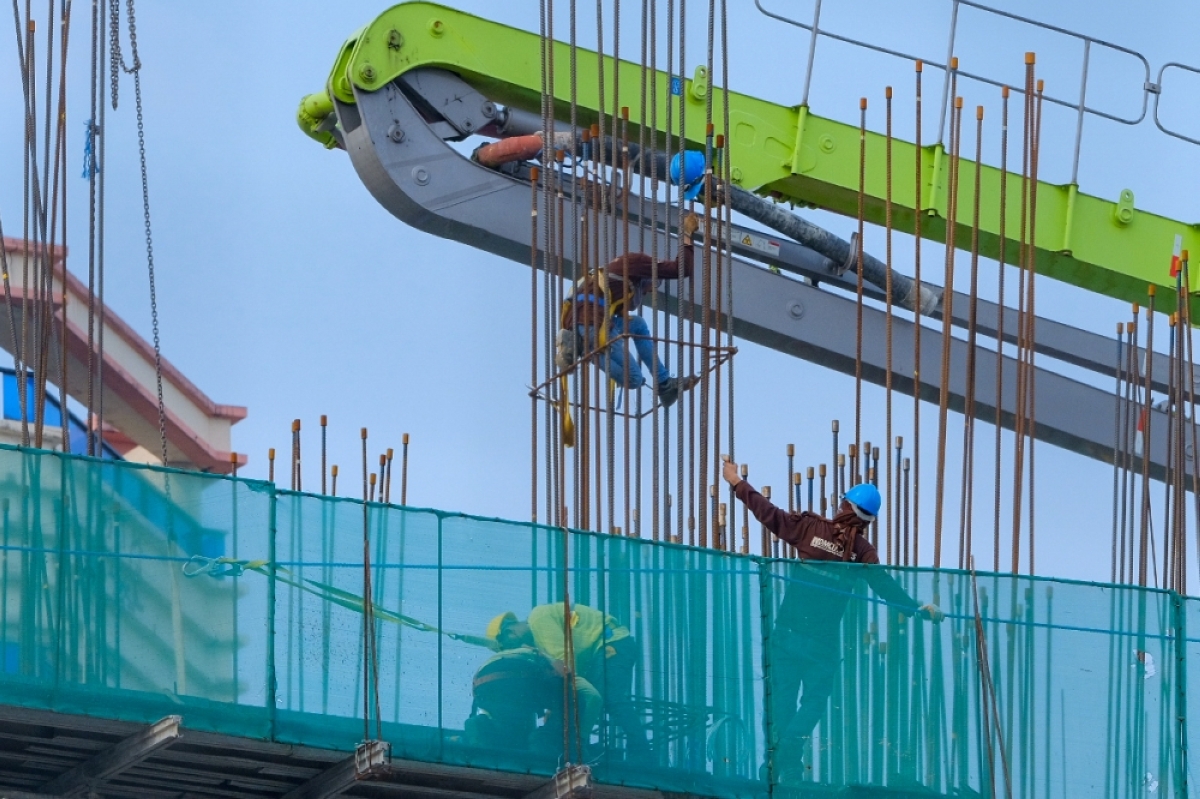A recent survey conducted by OCTA Research in the Philippines has revealed that a significant percentage of Filipinos are satisfied with the government’s education and infrastructure programs. The survey, which took place from September 30 to October 4, showed that 72 percent of the respondents were content with the quality of primary and secondary education, while 71 percent expressed satisfaction with the quality of tertiary and technical or vocational education.
In addition to education, the survey also found that 72 percent of the 1,200 respondents approved of the government’s infrastructure thrust. This indicates a positive perception of the government’s efforts to improve the country’s infrastructure and address the needs of the people.
The survey results also shed light on other areas in which the government received high ratings. The Marcos Jr. administration was commended for its efforts in protecting the welfare of overseas Filipino workers, with 69 percent of respondents expressing satisfaction. Similarly, 69 percent of respondents believed that the government was providing quality and affordable health care.
When it comes to responding to natural disasters and defending the country’s territory, the government received above-average ratings of 68 percent and 64 percent, respectively. These ratings reflect the public’s confidence in the government’s ability to handle crises and protect the nation.
However, the survey also highlighted areas in which the government received lower satisfaction ratings. For instance, 48 percent of respondents expressed dissatisfaction with the government’s performance in ensuring food security or access to affordable food. Similarly, 47 percent were dissatisfied with the government’s efforts in stopping the spread of illegal drugs, and 46 percent felt that the government was not effectively controlling population growth.
In addition, 45 percent of respondents believed that the government was not doing enough to lower taxes, 43 percent felt that the government was not adequately addressing graft and corruption, and 34 percent expressed dissatisfaction with the government’s efforts in reducing hunger. Furthermore, 29 percent of respondents believed that the government was not effectively reducing poverty, and only 14 percent felt that the government was successfully managing inflation.
OCTA Research further analyzed the survey results and found that a significant percentage of respondents expressed dissatisfaction in certain key areas. For example, 20 percent of respondents were dissatisfied with the government’s performance in ensuring food security or access to affordable food, 21 percent felt that the government was not doing enough to fight graft and corruption, and 22 percent believed that the government was not effectively addressing the spread of illegal drugs in the country.
Moreover, 28 percent of respondents expressed dissatisfaction with the government’s efforts to reduce hunger, 31 percent felt that the government was not adequately reducing poverty, and a significant 64 percent believed that the government was not effectively managing inflation or controlling the prices of basic goods.
The survey also revealed regional variations in satisfaction levels. The research group noted that a lower percentage of adult Filipinos in the National Capital Region (NCR) expressed satisfaction with the national government’s performance in creating more jobs and protecting human rights, compared to other regions. On the other hand, a higher percentage of adult Filipinos in the NCR were satisfied with the government’s program on proper and effective response to natural disasters and providing quality and affordable health care.
Overall, the survey results indicate a mixed sentiment among Filipinos regarding the government’s performance in education and infrastructure. While there is a high level of satisfaction in certain areas such as education and infrastructure, there are also areas where the government needs to address public concerns and improve its performance.
It is essential for the government to take these survey results into consideration and work towards addressing the areas of dissatisfaction. By doing so, the government can better serve the needs and expectations of the Filipino people, ensuring a more prosperous and inclusive future for the nation.







